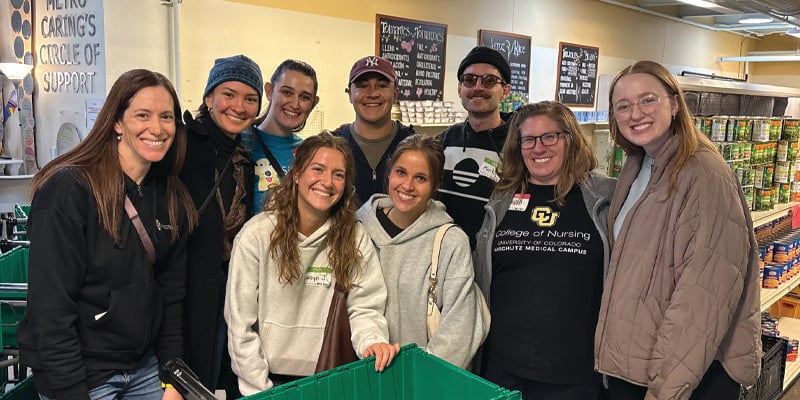When you talk to Cedric King, he brightens the room and emits positive energy.
But things weren’t always positive for King. In 2012 while serving in the Army and deployed in Afghanistan, King was on a mission that changed his life forever.
“It was supposed to be a simple mission, we were supposed to do reconnaissance,” he says. “I’m in this little hut, the size of a small room, and we’re taking pictures. Everything was going according to plan.”
Then suddenly everything wasn’t going according to plan.
King says the mission was going so well, that he went outside and alerted soldiers around the perimeter. That’s when he stepped on an IED (improvised explosive device).
“It was an explosion, an electrical impulse and it was so powerful. There was a lot of heat, a lot of pressure, and a lot of force,” he says. “I had never had a concussion, so I didn’t know what I was experiencing. It felt like time was slowing down so slow…and then time picked up again.”
King says he looked down at his legs and saw lots of blood but had no idea how devastating the injury would be. He lost both of his legs, spending days in the hospital, and years recovering.
He admits his recovery was full of highs and lows – including relearning how to walk.
“It was falling down, falling down, falling down, falling down, then I’d walk two steps and get excited. Then on the third step, I would crash and burn, fall again, and again. It was like that for months,” he says. “But it was these small pockets of sunshine in these long stretches of darkness that kept me going. They can be so heartbreaking, but they’re the bedrock of you becoming a better you.”
King will share his story of overcoming his injuries and becoming an inspiration during the University of Colorado College of Nursing Partnership for Veteran and Military Health Care Conference. The conference, hosted at Anschutz Medical Campus, runs April 25-26. It focuses on bringing together different approaches to treatment and caring for veterans, service members, and their families.
Recovery and Resilience
King has been sharing his story of resilience and recovery for years and says it’s important for veterans and their families to understand they’re not alone.
“The more you’re able to share the dark things that have happened, the more it creates light. We sometimes think that if we hide in the darkness, then somehow, it’s protecting us. The truth of the matter is, when you hide things in the dark, you end up creating more problems for yourself because there is no growth,” he says.
Partnerships for Veteran & Military Health Conference |
|
When: April 25-26 Where: CU Anschutz Medical Campus Who’s Invited: Veterans, service members, their families, and community members Register: https://cucon.regfox.com/pvmh2024 |
“When you continually face those dark days and hang on to the sunshine, you’re becoming a better you. And when you become a better you, you get a better life.”
He also says talking about past trauma is a therapeutic way of healing, something King didn’t realize until his injury.
“Talking it out is a way that our bodies, our brains, and our creator are all synched together,” he says. “We’re able to share the darkest things, and it’s almost like a self-healing mechanism because that dark thing no longer has power over us. For example, if you tell the story of someone who bullied you in fourth grade long enough, sooner or later that moment in your life is no longer going to be a bad day. It will just be another day on the calendar.”
Flourishing with a Team
King needed a team when he became a double amputee. He had his wife, children, and family as a support system. He said three things were key to his recovery: a military mindset, his upbringing and faith, and his family.
“With these three pillars, I was able to find my way back to a better life,” he says. “My family gave me an opportunity for me to find out who I was again. They helped me find my new normal in a safe, contained, and loving area. It’s the same environment I had as a child, but this time I have a wife and two kids.”
One aspect of the military is there’s always someone with you. You have someone with you for basic training when you have free time on the weekends, and when you’re deployed. King says that’s why service members need to have a support system when they retire from active duty.
“You always stay in packs,” King says, “so it’s counterintuitive for us to teach this throughout our entire military career, only for us to get out of the military and not have anything there. We have to ensure that we keep veterans together because we flourish in these environments. If you give most service members a team, they’re going to win.”



